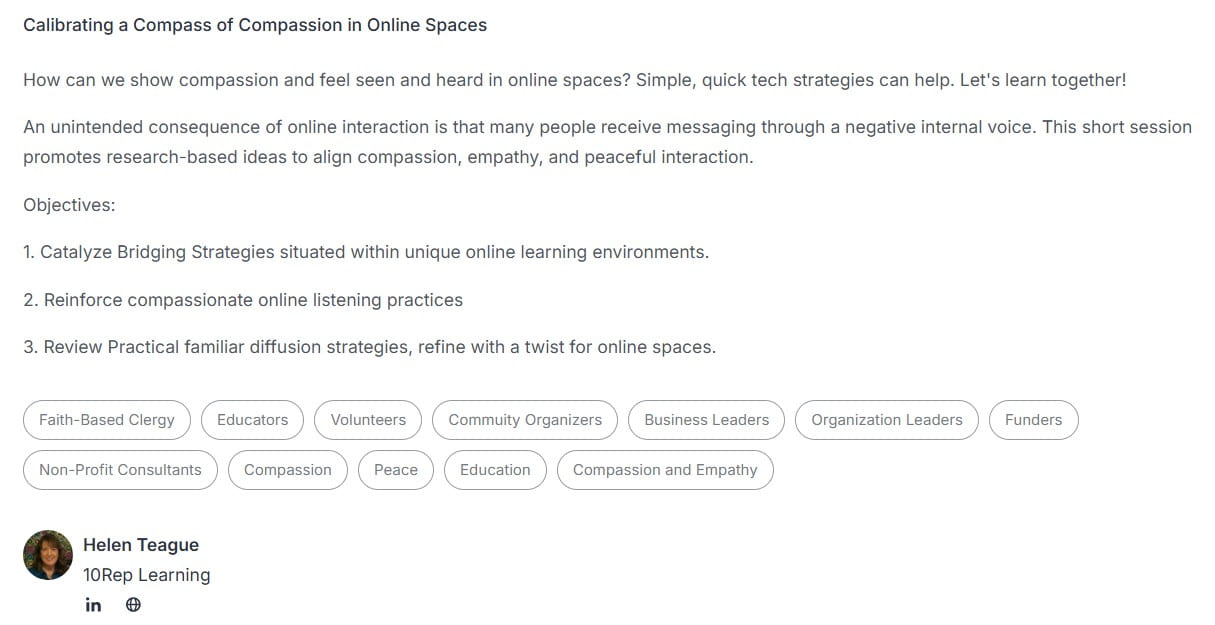Excited to be part of the Compassionate Action Conference May 14 and 15
Excited to be part of the Compassionate Action Conference on May 14 & 15! Join me for the session titled “Calibrating a Compass of Compassion in Online Spaces.” In the digital realm, we often encounter messages that trigger a negative internal and external dialogue. This brief session aims to explore ways to foster compassion and harmonious online interactions.
Special thanks to Lucy Gray. hashtagCAC2025
- Catalyze Bridging Strategies situated within unique online learning environments.
- Reinforce compassionate online listening practices
- Review Practical familiar diffusion strategies, refine with a twist for online spaces.










